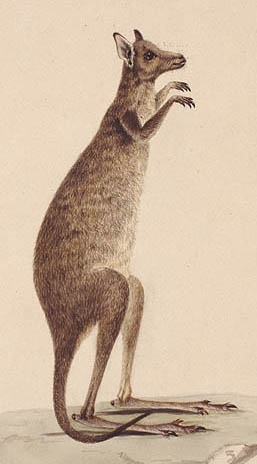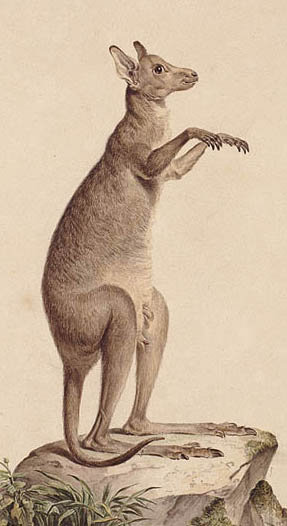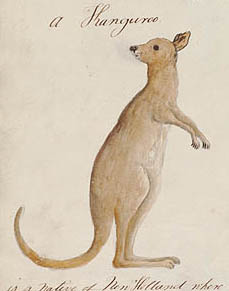ACL 2009
Australian Literature
Semester 2 2013
Footscray Park
Lecture 1
Introduction to Australian Literature
Concerned today with two terms: Australian, Literature
More accurately three terms: also Australian Literature
Literature
This is the first definition of literature from the Macqaurie dictionary
writings in which expression and form, in connection with ideas of permanent and universal interest, are characteristic or essential features, as poetry, romance, history, biography, essays, etc; belles-lettres.
Literature is a fine writing which embodies certain permanent and universal ideas.
This is the definition that held sway for such a long time
So
- Something like Milton's Paradise Lost is about the eternal struggle between good and evil, or between heaven and hell.
- King Lear is about the perennial struggle of generations and their values.
Questions of place, in this scheme of things, are not all that important.
After all, if something has universal and permanent interest, it doesn't matter when or where it is set:
- western suburbs of Melbourne;
- the Australian outback
- Africa;
- the banks of the thames
as long as it reflects those universal and permanent values.
If this were the case then we wouldn't need to think about ideas like Australian literature. Nor would we have to ponder postcolonial literature, migrant/ethnic literature, lesbian literature, feminist literature, Aboriginal literature or working class literature. We could just have literature and be done with it.
Well it's not that simple.
The trouble is, I suppose, that just about all of those works that were seen to be of permanent and universal interest seemed to be written by white middle class men (and occasionally women) from Britain, Ireland and the US.
And unless we are to argue that these people had privileged access to the mysteries of the universal human condition then it represents something of a problem.
Counter movements have arisen which suggest that Place is vital in interpreting a piece of writing.
- Postcolonialism
- regional writing
The rise of Australian literature can be seen as a local recognition that this place needed a form of literary expression which was different from those coming out of Britain or the US.
Ideas of place have been central in the dev of ozlit
Australia
It sounds like a strange question: but what is Australia? We can ask that question in a number of ways
- politically—how are we organised internally and externally?
- culturally—what do we do to nurture ourselves?
- ethnically—what are our origins, genetics?
- geographically—what sort of physical place is Australia?
Significantly, the answers to these questions are not stable, and never were. We might have a sense of general consensus about the issues of course but we need also to be aware that historically these questions have elicited very different answers.
Australian Literature
- Some of the early pieces of writing in Australia wondered just what kind of place Australia was (Bernard O'dowd's sonnet askes a series of such questions)
- The empty centre of the country—terra nullius
- Opposed to this is the idea of the desert/bush as a spiritual place—Serle From the Desert Prophets Come
- Patrick White's Voss and Fringe of Leaves and Tree of Man
- Bush values are superior to city ones
- Lawson and Paterson's debate in the Bulletin—read Lawson's opening salvo
Lawson sees the country as a place of despair and pity
Paterson sees the country as a place where positive human capacities are intensified and brought to the fore.
- While they disagree about the nature of the bush, each sees the bush as an important place about which literature should be written
- Lawson is perhaps a hard-nosed realist writer, focusing on the negatives in a pessimistic voice;
- whereas Paterson is more positive;
- Most other contemporary writers, like Barabara Baynton, Joseph Furphy, John Shaw Nielson, focussed on the bush—though their attitudes to it were greatly at variance.
This focus on the bush raised two problems:
- It seemed to ignore the reality that most Australians, then, as now, lived in the big cities.
- It promoted a vision of the bush that was peopled mainly by white men. Excluded were women, Aborigines and non-Anglos; the bush was ‘no place for a lady' and writers like Lawson and Baynton emphasised that—to different ends.
This is not to say that other kinds of writing weren't being written and published.
A lot of feminist scholarship has gone into showing that many women were writing and being published at the turn of the century. This writing often focused on themes other than the nobility of the male bush worker.
- Baynton's despicable and gutless male characters.
- Mary Gaunt's Kirkham's Find .
William Lane's The Workingman's Paradise is very much set in Sydney and again has a realist aspect to it.
The point however is that when the Australian literary canon came to be constructed in the 1950s and later, those works which developed and emphasised the importance of the masculine bush ethos were seen to be the significant ones by the critics of the day.
- AA Phillips, The Australian Legend
- Vance Palmer, The Legend of the 90s
- John Manifold, Who Wrote the Ballads
The figure of the independent bushman was an attractive figure to radical nationalists who were looking to establish a canon of literature which justified our political and cultural independence from both Britain and America. Clancy of the Overflow and The man from snowy river seemed to embody all that was noble and different about the Australian character.
A lot of the critical work of the last 40 years has argued against this view, promoting a sense of diversity in Australian literature and criticism.
Australian criticism has moved in the last forty years from needing to assert the unity and value of a place called Australia to being able to think about the diversity of places within the nation. The very idea of the nation has come into question in an era in which globalism appears to be the catch-cry
Bruce Bennett asks
How important is place in Australia? Does it Matter? What difference does it make if I write, or speak, from Perth, Townsville, Melbourne or Alice Springs; from mount Misery or the edge of Lake Disappointment? Do these physical locations, or the metaphorical force of their names locate ‘me' in some significant way? Or do ‘I' have the luxury of eluding all taint of definition from the places I have lived in or ‘known'? To what extent am I made by such places? To what extent do I make them?
We might get even more specific: what difference does it make if I speak at VU in St Albans as opposed to Melbourne Uni Carlton? What difference does it make if a writer writes from Footscray as opposed to Fitzroy; or the West as opposed to the East?
Just what impact does place have on the way we write? How do Tsiolkas. Prichard and Cook's identities influence the way they write about place?
Other ways to think about place:
Sally Morgan's My Place
- Not just a spatial figure;
- also to do with ideas of social place;
- one's place in society;
- on the social ladder;
- a place of psychological comfort
Exercise Look at these early Australian etchings. What animal are they representing? How much do they actually look like that animal?
In Barron Field's poem the kangaroo was described as looking like a cross between a deer and a squirrel; the platypus as a cross between a duck and a mole. These linguistic and graphic inaccuracies are intimately related. Do these errors occur because early colonial writers and artists did not have the conceptual frames to see the animals as we do today? What impact does this have on our perceptions of:
|



